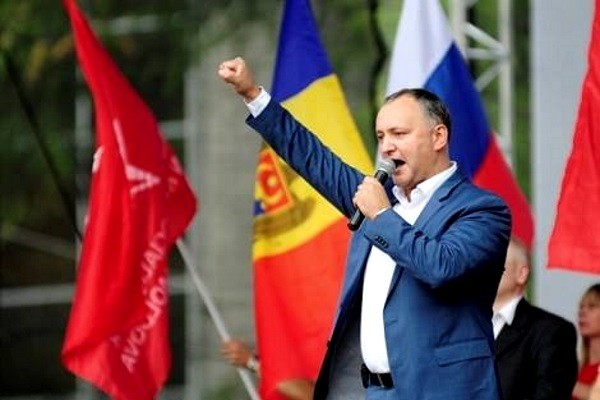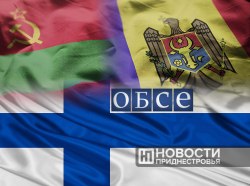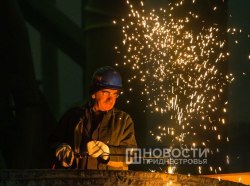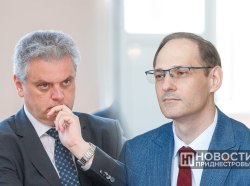PR is an integral political attribute. The higher a politician stands on the hierarchical ladder, the more opportunities he has to advertise himself.
One of the brightest newsmakers in Moldova is its president, Igor Dodon. At times he does not even have to say a single word to get into the news. For example, as soon as he attended the Women's World Chess Championship in Teheran at the start of this year (Dodon is the head of the National Chess federation), many pundits concluded that Dodon was going to discuss «gas issues» with Iran, although it was quite clear that the Iranians would not build a special pipeline to Moldova. The fact, however, remains
The Moldovan president has recently outperformed himself in this «silent PR». Having appeared several times on TV during a military parade in Moscow on Victory Day near Vladimir Putin, Igor Dodon at once got into the top international news. As the fates decree, the Moldovan president was lucky twice: he was the only senior foreigner present in the Red Square except for ambassadors and military attaches. Then came professional and quasi-professional commentators with their fantasies. Among the remarks they made were comments concerning Pridnestrovie, saying that Dodon had gone to Moscow to negotiate the PMR's fate with Putin.
It should be noted in this regard that other presidents from ex-USSR countries had been also invited. But not all of them can be reproached for not coming to Moscow. Victory Day is a national holiday in many countries. And the fact that it is necessary to stay with their own people on this sacred day was mentioned in official letters by post-Soviet leaders to the Russian president. Igor Dodon had managed to benefit from his trip to Moscow while still in Moldova. During a concert of Russian pop singers in Kishinev on 7 May, he sought permission from the audience to go to Moscow. Naturally, the answer was a chorus of thousands «Yes!» The reaction was quite predictable.
Someone may sceptically note: «Why would the newly elected president advertise himself because, as a rule, presidents do so in the run-up to elections in order to be re-elected?» The reason does not lie in the presidential elections, which are still far, but rather in the parliamentary ones which are to be held next year.
Dodon has already implicitly recognised that all his attempts to lead the country to a snap election had failed. Besides, he does not really need it. But calls for a snap election, according to pundits, perfectly fit into a strategy of «non-executable promises». Because of Moldova's political system, its president may promise whatever he wants to. And the fewer efforts he makes to agree upon his positions with the government and parliament, the better. His innitiative will be axed, and Igor Dodon himself will be the «popular leader” against the «anti-popular” parliament and government.
Only after arrival in Kishinev would Igor Dodon tell about what he talked to Vladimir Putin. «We focused on the issue of bilateral relations. Progress has already been made in regard to the resumption of exports and the solution of the problem of migrant workers. We have requested to continue opening the Russian market to Moldovan enterprises on the one hand and, on the other hand, to continue resolving the problems of our compatriots working in Russia," Dodon told journalists upon his return to Moldova.
Not a single word was said about Pridnestrovie. Although this topic could not be ignored during the meeting. The Moldovan president had simply nothing to say about it. Russia's stance remains unaltered: the sides must find a solution by themselves, and the other participants in the Moldo-Pridnestrovian settlement should help them. Therefore, when speaking with journalists, Igor Dodon preferred to leave out the issue of Pridnestrovie to avoid additional questions like: «What exactly did you talk to Putin on Pridnestrovie?» If Dodon had even slightly benefited from the talk about Pridnestrovie, he would have gladly described it in every detail. But he hadn't. However, even before Dodon's return to Kishinev, Moldova's Liberals had accused him of «treason».
According to the leadership of the Liberal Party (headed by famous political showman Mihai Ghimpu), the president should have abruptly reacted in Moscow to the joint parade of Pridnestrovian troops and Russia's OGRF servicemen which was held in Tiraspol on 9 May. A small group of Liberals met him at Kishinev Airport with the slogans «Dodon is a traitor!» Given that the Liberals have already bothered even their partners in the Eurointegration coalition, their action plays into the hands of the «traitor» himself. But at the same time, the first thing Dodon did upon the arrival from Moscow was putting his signature for a referendum on the dismissal of Kishinev's mayor Dorin Chirtoaca, a prominent member of the Liberal Party. The collection of signatures, by the way, was organised by the Socialists, who had been headed by Igor Dodon prior to his election as president. A good move. The general mayor of Kishinev is very unpopular today with Kishinev voters.
On 9 May Moldova celebrated both Victory Day and Europe Day. The latter is celebrated in the EU to commemorate the so-called Schuman Declaration. The French foreign minister, Robert Schuman proposed in 1950 to merge the metallurgical and mining industries of France and West Germany.
It is believed that the initiative of the then French FM became a prelude to the establishment of the EEC (European Economic Community) which in turn was later transformed into the EU. A march organised by the Democratic Party of Moldova to celebrate Europe Day gathered far fewer people in Kishinev than an Immortal Regiment rally. The Democrats were reported to organise the transportation of its supporters to Kishinev from all over Moldova. Even the concert they organised in the capital's centre gathered fewer people than the one held two days earlier.
Thus Moldova is likely to have parliamentary elections in 2018. The main achievement of the Eurointegrators is visa-free travel granted by the EU to Moldovan citizens. The Socialists has responded by collecting signatures against Chirtoaca, putting forward a bulk of other unfeasible initiatives and, most importantly, the president's visit to Moscow. The game is going on. But it's a pity that the sacred holiday was used in Moldovan political games.
Let's not guess what will happen if the Socialists are able to secure a constitutional majority in the parliament and remember the presidency of yet another Moldovan politician who claimed his pro-Russian position…
Source: Alexander Nikitin, Pridnestrovie daily.








